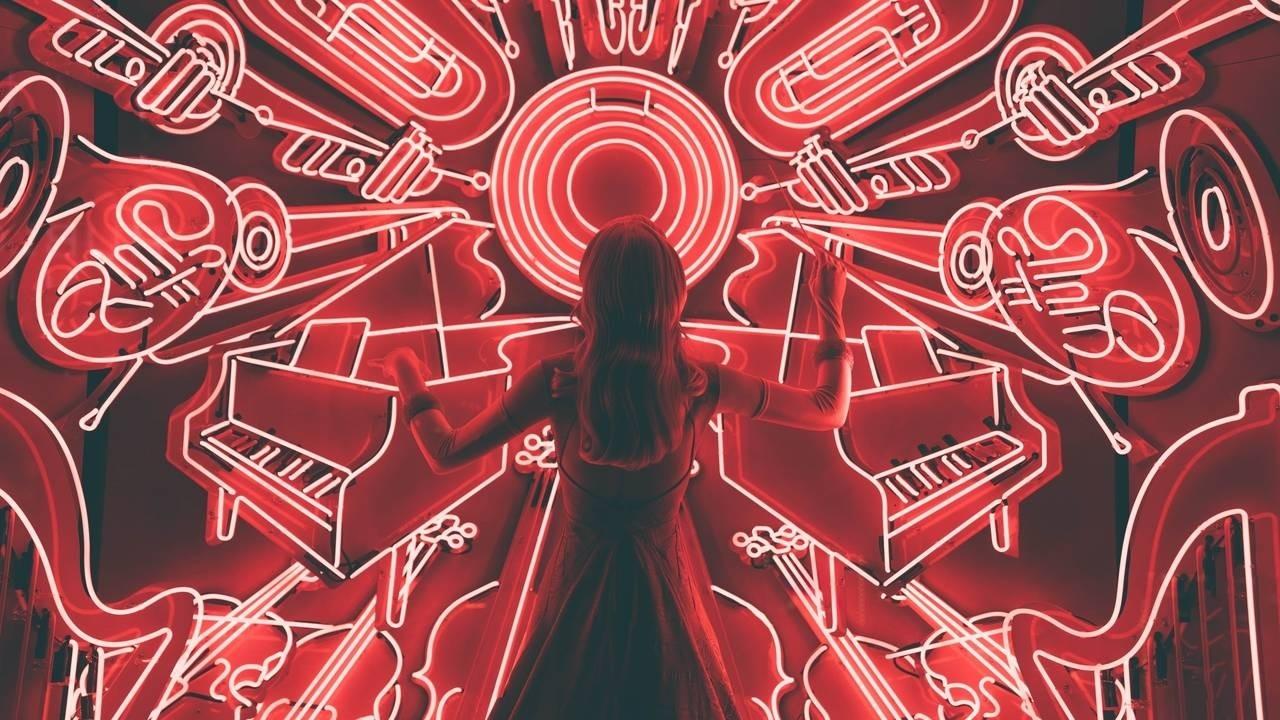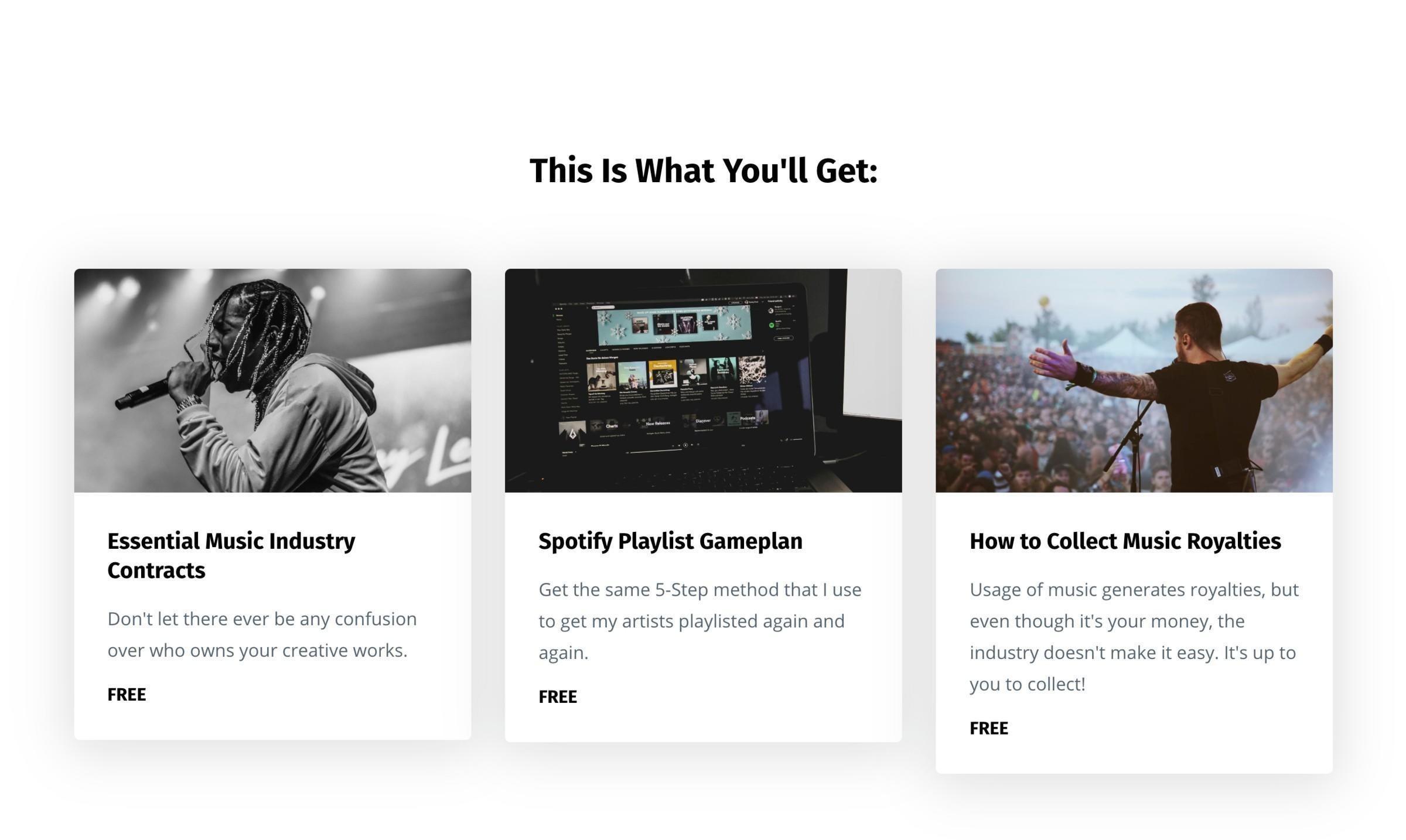How Does The Music Industry Work?

To become a successful artist, it often takes more than talent. You've heard it time and again, and by now you might be spinning in circles trying to find the best way to launch yourself into the circle of success in the music business. Well, wonder no more, because today we're breaking it down into a few areas of improvement that guarantee a turnaround for you. We marry your talent with a basic understanding of the business know-how to build your brand and gain popularity. Pay attention.
Audience Growth

Before the record labels, before the big contracts, and before the sold-out arenas, it all starts with your core audience. Just hoping that someone will listen to your music is often not enough these days. While there are “tips and tricks” out there to help you get started, it's often difficult to find that long-term strategy.
The best route is to become more invested with your fans, no matter how many or how little you have. Make content creation your number one mission, alongside music creation: interact with fan questions on social media, let them get a glimpse of your recording sessions, or just be a little more open about your creative process. The more they learn about you, the more they'll want to stick around and watch you succeed. And that means signing up for alerts, newsletters, or maybe even merch (more on that later!).
It's becoming more apparent that artists don't necessarily need big labels to get big. By turning your attention outwards, you receive that same attention and love in return from your fans, which in turn becomes a better launching point than waiting for higher-ups to tell you when it's your turn.
Music Monetization

Similar to tips and tricks for audience growth, those short-term spurts of money-making schemes just aren't going to cut it in the long term. In the olden days, an artist or group could make a fortune with physical distribution, selling CDs and vinyls, but digital distribution, or streaming, is the most popular way nowadays. However, due to the terrible return on streams, it's unlikely that any artist can survive on streams and music sales alone.
This is where the “360 idea” comes in. The 360 Record Deal is a popular contract for record companies to get a small cut of any revenue stream that an artist gets into, in return for providing artists with all their needs for marketing, promotion, tours, and more. However, we want to take that contract and instead make it work for you as a business model. Make a 360 deal with yourself by expanding your skill range to be more than your music. You can achieve this by learning related skills, such as working as a music producer or in audio mixing. Or you can go retail, selling merchandise and limited edition products. Some artists are also YouTube creators, interacting with the fans on the platform and benefitting from views. By taking advantage of these other revenue streams, you'll have more cash lining your pockets than if you relied on your music alone. Plus having multiple sources of content and interaction only increases your fanbase (which was step 1, see what we did there?).
The industry today thrives on attention. The more content you put out there, such as new music, promotions, or brand deals, the more attention you'll receive from your die-hard fans and new ones.
Licensing
This is a lesser-known revenue stream that many artists are missing out on! Did you know that businesses and individuals can “license” your music to play, and pay you different types of royalties for it? What's great is that you can set the contract for how long they can play it and how much you earn from it. Additionally, you remain the copyright owner and don't lose the rights to your songs! Think of it as a “lending” license. Restaurants, shopping malls, wedding DJs, and YouTube creators can license your songs for a fee and a set amount of time. Even films and TV shows can license your work for upwards of thousands of dollars and earn you synchronization royalties, depending on the budget or expected exposure. These types of licenses are often negotiated with a music supervisor or music editor. Want to learn more about music licensing? Check out our article: How Does Music Licensing Work?
Indie Record Label vs Major Label: Which is Best For You?
Unfortunately, this isn't a question we can answer for you. BUT we can offer you some pointers on big differences between the two, so that you can decide what would work best for your goals.
If you're determined to sell out stadiums, get all the cool promotional deals, and be an international star, a major record label would be your best bet. This is especially true if you need help financing time in a recording studio and distributing your music. They handle everything you ever need, from touring, to recording, to creating your merchandise. They typically take a large cut of the profits in order to make back what was spent to launch your career.
However, on the flip side, if you're just looking for support with contracts that will benefit you the most instead of a bottom line, then an independent record label may be better for you. More independent labels are gaining prominence as it becomes easier for artists to break out over streaming, instead of just the radio airwaves and MTV like in the past. This puts them and you in a position to develop and profit mutually, without having to meet a certain financial threshold or be forced to create music you don't like.
Not sure if you're ready to get signed? Check out our article: How to Land a Record Deal.
Technicalities - Asking For Help!

This last step is the biggest thing that you've been told since you were in grade school… “ask for help!” Just like Link heard in Legend of Zelda before his quest, “It's dangerous to go alone!” we're handing you our sword of truth: that it's okay to ask for help when you need it.
We know that even though it's all about the music, there are still some technical know-how and business practices involved to stay savvy in the industry. Whether it's building an EPK, signing up with Performance Rights Organizations, learning how to mix your own songs, or learning the ins and outs of a Kontakt library, it's essential that you know at least a few of the skills to bolster your toolbox as an independent artist.
We have everything you need to accelerate your music career and start making money from music. You can become a student for free by joining our free music marketing workshop! This puts you directly in touch with Ryan and the rest of the Indie Music Academy team.
It's completely free to join with no strings attached (other than sending you helpful coaching via email)!
Here's the link to sign up and get the free training today >>> Join the Indie Music Academy for Free


